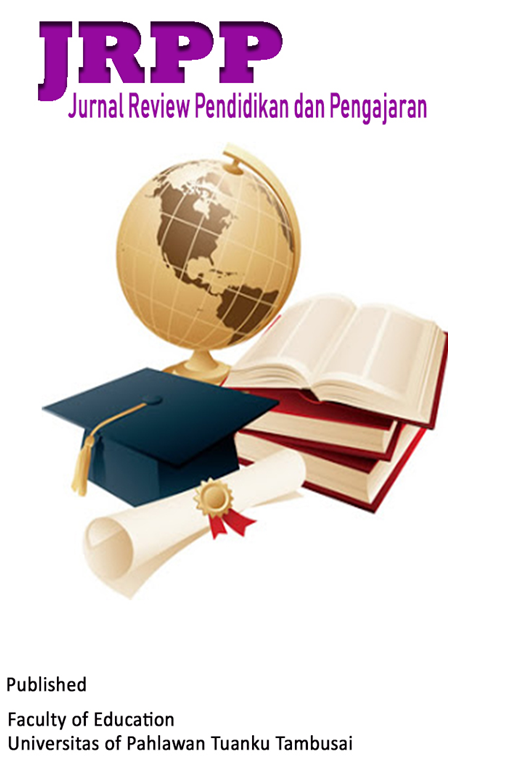SOSIALISASI LITERASI DIGITAL SISWA DALAM BERMEDIA SOSIAL SMAN 2 KOTA TERNATE
DOI:
https://doi.org/10.31004/cdj.v5i6.37896Keywords:
Literasi Digital, Siswa SMA, Media SosialAbstract
Literasi digital menjadi penting karena melimpahnya media dan informasi di dunia digital, literasi digital menjadi lebih dari sekedar kebutuhan. Selain tantangan, peluang besar juga ada di media digital. Hal ini mencakup memberdayakan individu untuk mengakses informasi, berkomunikasi secara efektif, mendapatkan pekerjaan, berpikir kritis, dan menavigasi lanskap digital secara bertanggung jawab. Baik seorang pelajar, profesional, atau sekadar seseorang yang ingin berkembang di era digital, berinvestasi dalam literasi digital adalah pilihan bijak. Kegiatan pengabdian ini berfokus pada sosialisasi literasi media sosial yang menunjukkan pertumbuhan penggunaan paling masif dalam 5 tahun terakhir. Mitra yang disasar adalah SMAN 2 Kota Ternate dengan partisipan guru dan siswa. Dengan melibatkan 35 siswa, kegiatan ini berhasil dilaksanakan dengan metode sosialisasi interaktif dengan aktivitas survei, permainan, hingga penyuluhan. Pada akhir kegiatan, peserta menunjukkan antusiasme tinggi dan ditutup dengan deklarasi anti bullying di media sosial. Ke depannya, diharapkan penyuluhan literasi digital dapat dilaksanakan dengan lebih terukur misalnya menggunakan metode pre-test dan post-test agar capaian berupa pemahaman peserta dapat dievaluasi dengan baik.References
American Library Association. (2019). Digital Literacy, Libraries, and Public Policy. Retrieved from https://www.ala.org
Common Sense Media. (2017). Social Media, Social Life: How Teens View Their Digital Lives. Retrieved from https://www.commonsensemedia.org Erikson, E. H. (1968). Identity: Youth and Crisis. W. W. Norton & Company.
Cyberwise. (2023). Empowering Digital Literacy On TikTok: How To Make A Video About Safer Online Experiences. Retrieved from https://www.cyberwise.org
Hattie, J., & Timperley, H. (2007). The Power of Feedback. Review of Educational Research, 77(1), 81-112.
Huang, K. (2022). For Gen Z, TikTok Is the New Search Engine. Retrieved from https://www.nytimes.com/
Jenkins, H. (2009). Confronting the Challenges of Participatory Culture: Media Education for the 21st Century. The John D. and Catherine T. MacArthur Foundation.
Johnson, D. W., & Johnson, R. T. (2009). An Educational Psychology Success Story: Social Interdependence Theory and Cooperative Learning. Educational Researcher, 38(5), 365-379.
Lcom Team. (2023). Five Proven Strategies for Educators to Support Digital Literacy. Retrieved from https://www.learning.com
Minta, L. (2022). How Gen Z is using TikTok to search for information and what it means for information literacy. Retrieved from https://inforlit.org.uk
National Cyber Security Alliance. (2020). Cybersecurity for Kids and Teens: How to Stay Safe Online. Retrieved from https://staysafeonline.org
Ribble, M. (2015). Digital Citizenship in Schools: Nine Elements All Students Should Know. International Society for Technology in Education.
Subrahmanyam, K., & Šmahel, D. (2011). Digital Youth: The Role of Media in Development. Springer.
TikTok Phillipines. (2022). TikTok Digital Literacy Hub: A Guide to Online Safety. Retrieved from https://newsroom.tiktok.com
Vygotsky, L. (1978). Mind in Society: The Development of Higher Psychological Processes. Harvard University Press.
Wong, D. (2018). The Importance of Digital Literacy in Today's Digital World. The Learning Network.
World Economic Forum. (2020). The Future of Jobs Report 2020. Retrieved from https://www.weforum.org
Downloads
Published
How to Cite
Issue
Section
License
Copyright (c) 2024 Sutisno Adam

This work is licensed under a Creative Commons Attribution-ShareAlike 4.0 International License.















